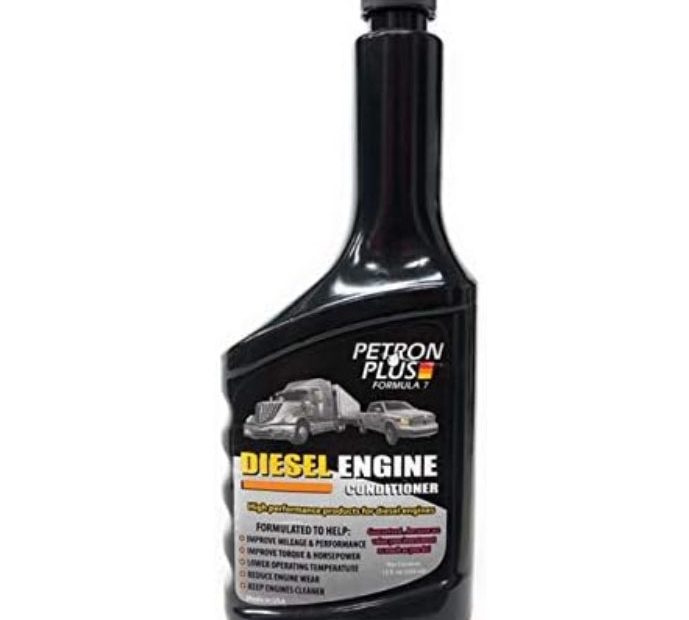Brand: Petron Plus Formula 7 Diesel Engine Conditioner
- Will not void vehicle warranties. Formulated for petroleum or sythetic oil.
- Helps to significantly reduce friction between moving parts. Increase fuel mileage.
- Lower operating temperature. Conditions seals. Protect against acid and corrosion.
- Quiets noisy engines. Starts quicker in cold weather. Increases engine life.
- Extends oil changes by 3-4 times, based on oil analysis. oil to metal.
E.P. (Extreme Pressure) Lubricants, designed for Diesel Engines. Nano-Monomolecular technology, treats the metal not the oil, long term. Ask about our Petron Dyno test, adding 5 HP on the Dyno. World record performance, 37 years proven success Highest ASTM’s. Petron Plus Formula 7 Nano Monomolecular technology is 0.1 micron in size. When Petron Plus Formula 7 is added to an existing lubricant, tiny molecules (less than 1 micron in diameter) are carried directly to the friction face. Because the molecules are very small, 0.1 in size (a human hair is 50 microns). Solid additives (i.e., PTFE, Teflon (a registered trademark of DuPont), Moly, Graphite, etc.) are 2 to 10 microns in size. The Petron Plus Formula 7 technology is much the size of a cold virus, and in that conjunction can’t be stopped. Once the molecules reach the friction face, they are attracted to the surface, thereby reducing friction, wear and drag. The Petron Plus Formula 7 Nano Monomolecular technology contains none of the common EP agents such as molybdenum disulfide (Moly), graphite, Teflon, or PTFE resins, copper, lead, silver, or other metals, nor other previously used EP agents. It doesn’t contain Carbon Tetrachloride, 1,1,1, Trichloroethane, or Chlorinated Paraffin, or Chlorinated Solvents or any other harmful solvent. The Petron Plus Formula 7 Nano Monomolecular lubricant technology is about to revolutionize the design and performance of wear components, thanks to the extremely high shear strength of the re-engineered hydrocarbon. Once there, intermolecular force pulls the molecules to the surface where they cluster to fill in any pores or roughness. The remaining areas are covered by a layer less than one molecule deep, hence the term Nano Monomolecular. The intense shear strength of these microscopic layers provides outstanding smooth running and reduced friction characteristics, under the most demanding conditions even the most advanced EP lubricants fail to meet.
